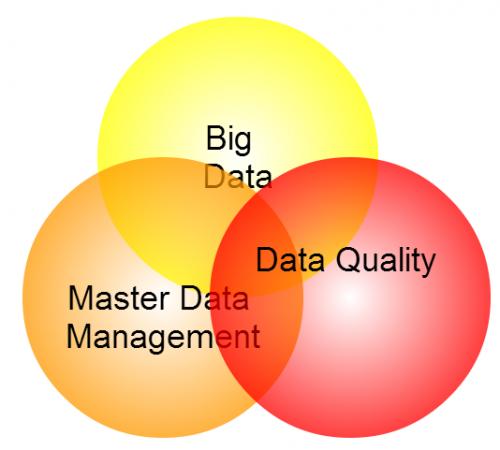How Data governance affects business strategy
 Data governance is a control that ensures that the data entry by an operations team member or by an automated process meets precise standards, such as a business rule, a data definition and data integrity constraints in the data model.
Data governance is a control that ensures that the data entry by an operations team member or by an automated process meets precise standards, such as a business rule, a data definition and data integrity constraints in the data model.The data governor uses data quality management tools for monitoring against production data to communicate errors in data back to operational team members, or to the technical support team, for corrective action. Data governance is used by organizations to exercise control over processes and methods used by their data stewards and data custodians in order to improve data quality.
Data governance (DG) refers to the overall management of the availability, usability, integrity, and security of the data employed in an enterprise. A sound data governance program includes a governing body or council, a defined set of procedures, and a plan to execute those procedures.
A Governance program is used for establishing the decision making procedures and authority around a specific domain. In other words a governance program is about describing how to decide in order to be able to handle complex situations or issues in the future in the most controlled and efficient way possible. Organizations might need a Data Governance Program for several and different reasons. In all the cases, the framework that is set by the Data Governance Program will aim to control and reduce the risks around the data as well as help the organization to use the data to chalk out new opportunities for growth and development.
Goals of data governance
Increasing consistency and confidence in decision making –data quality improvement helps to derive business friendly decisions , hence helping to arrive at confident decisions
Decreasing the risk of regulatory fines – If data is maintained as per set standards and complies with rules set out by various government bodies , it helps in reducing the costs of regulatory fines and penalties
Improving data security- It will define the decision process as well as the roles and responsibilities of all the stakeholders involved.
Enforces Rules and Resolves Conflicts
The Governance program will then make sure that those rules and processes are used and applied correctly by all the stakeholders. If necessary they will be enforced.
Designating accountability for information quality- by enforcing rules it helps in designating accountability for information quality.
Maximizing the income generation potential of data -
Enable better planning by supervisory staff - data quality improvement helps in enabling better planning for future activities and tasks
Minimizing or eliminating re-work – the occurrence of duplication is reduces to a great extent since data is regularized
Optimize staff effectiveness – By reducing duplication of work and better planning, staff can focus on more important projects and improving the quality of output.
Establish process performance baselines to enable improvement efforts
Data governance assists in establishing process performance baselines
Data governance solutions by Verdantis will ensure your business strategies are formulated to encourage growth and advancement and to transform enterprise data to an asset for your business.
Jessica Banks is one of the most passionate marketing professionals in Verdantis. She is a strong proponent of Master Data Governance for large enterprises. For her, data drives performance.
Advertise on APSense
This advertising space is available.
Post Your Ad Here
Post Your Ad Here
Comments